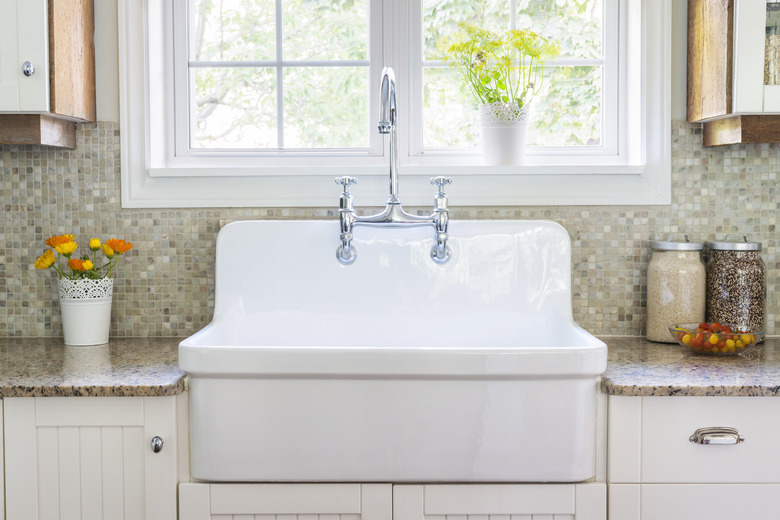Why Did My Porcelain Sink Crack?
Porcelain sinks are very common and durable, but they're also susceptible to cracking. Unfortunately, there is little you can do about the problem once it happens. However, learning the different reasons a porcelain sink cracks can help you prevent the problem from reoccurring to avoid future cracked sink repair cost issues. If your new or old porcelain sink is cracked and you don't know why, one of several issues could be to blame.
Drastic Temperature Changes
Drastic Temperature Changes
One of the more common causes of cracks in porcelain sink bowls is due to a very rapid or extreme change in temperature. An example is pouring a pot of boiling water into your sink. Since porcelain is usually layered on metal and metal is a conductor of heat, the sink loses heat fast and becomes very cold, even when your bathroom or kitchen isn't cold.
When hot water contacts the cold porcelain, it creates temperature stress that cracks the surface of the sink. To prevent this from occurring again, never pour hot liquids into a porcelain sink that hasn't been used for several hours.
Heavy Dropped Items
Heavy Dropped Items
A less interesting, but no-less realistic, reason for a cracked sink is a dropped item or contact by a falling item. Even though it's tough, porcelain will crack with impact. Anything heavy and solid will crack a porcelain sink fairly easily, especially if dropped from a substantial height such as the top of the medicine cabinet.
A glass jar of cotton balls, a can of shaving cream or even a heavy metal shaving razor that drops into the sink from cabinets above can cause a crack in the sink. In the kitchen, dropping a heavy pan on a porcelain enamel sink can cause cracking. Avoid placing heavy items on shelves over the sink, and use caution when holding heavy items over the sink. Instead place them beside the sink or in the sink cabinet drawers.
Other Accidental Damage
Other Accidental Damage
Accidents do happen, and oftentimes the results of the accident are ignored or unnoticed until later. Any sudden forceful contact with your sink, even from behind the sink wall, can cause a crack in the porcelain. If you moved a new appliance into the bathroom and it struck the sink, or were hammering away at the wall right behind the sink, the shock could crack the sink. Even leaning on the sink for a prolonged time will stress the porcelain and could lead to a crack.
Cracks in Porcelain Sink Over Time
Cracks in Porcelain Sink Over Time
In some cases, the crack doesn't form all once but instead forms over time due to the normal wear and tear that sinks take during regular use. It's nearly impossible to tell what caused these types of cracks. If you just noticed the crack and nothing serious occurred within the past month or two, this might be the reason.
Cracks will grow over time because the object is now compromised and therefore weaker. What started as a hairline crack might end with the sink cracked all the way through. Smaller additional shocks will slowly enlarge a hairline crack until it's large and noticeable.
